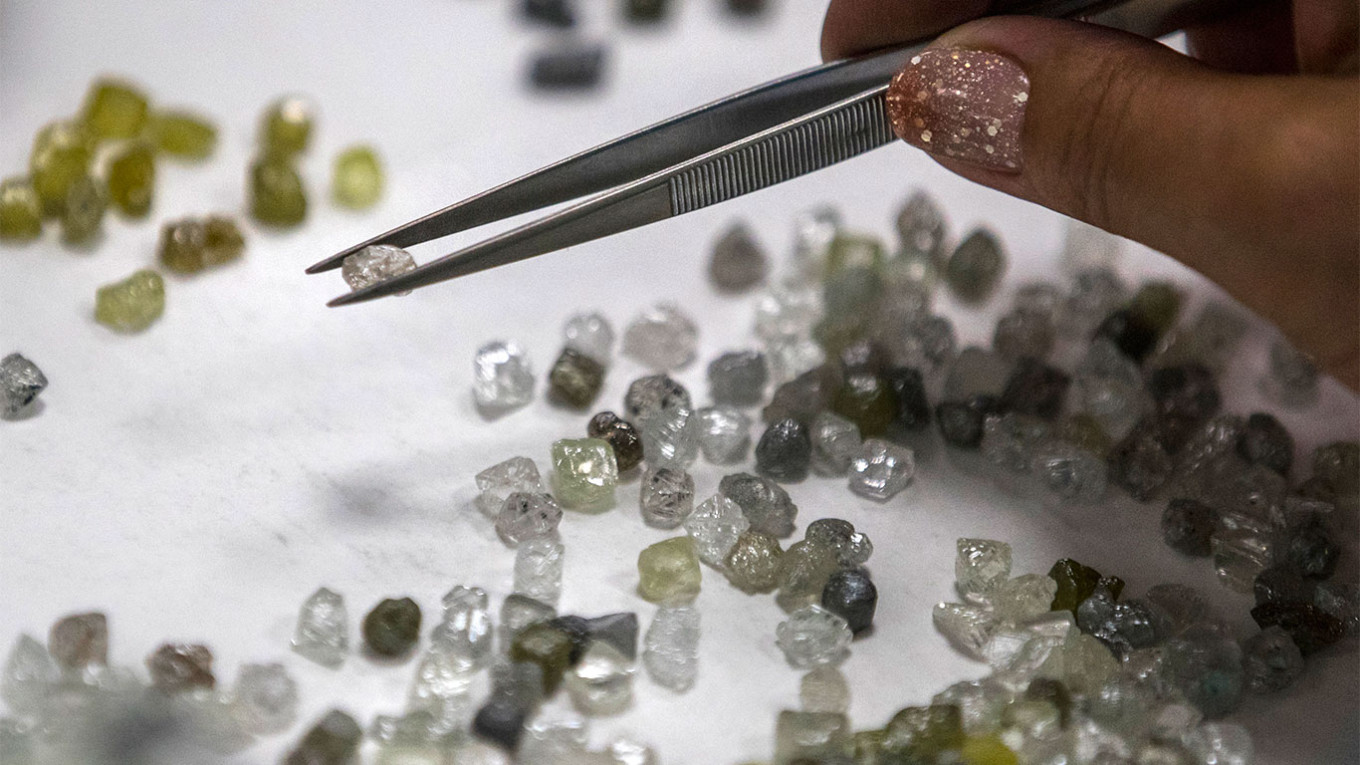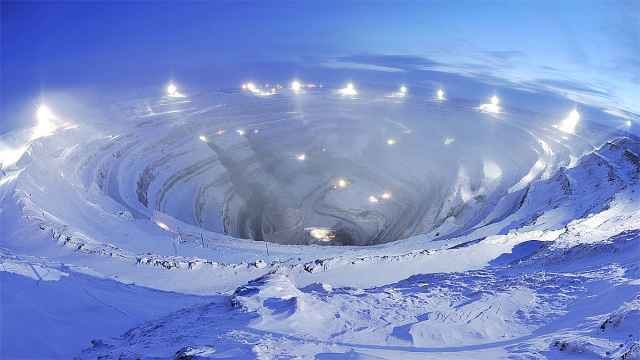The United States and its Western allies are seeking to label Russian diamonds “conflict diamonds” over the world’s largest supplier’s nearly six-month invasion of Ukraine.
Russia produces about one-third of the world's diamonds. The U.S., the largest importer of Russian diamonds, estimates that Russia exported more than $4.5 billion worth of diamonds in 2021.
“Proceeds from that production are benefiting the same state that is conducting a premeditated, unprovoked, and unjustified war,” U.S. State Department official George Cajati wrote in a letter quoted by The New York Times this week.
Cajati’s letter was addressed in May to the chair of the Kimberley Process, which certifies rough diamond exports, ahead of the group’s scheduled meeting in Botswana in June.
U.S. and British representatives had boycotted sessions led by their Russian counterparts at the meeting, while journalists had been asked to leave sessions they would be normally allowed to attend, the NYT reported.
The UN established the Kimberley Process in 2003 to remove conflict diamonds from the $80 billion global diamond industry’s supply chain. The KP defines “blood diamonds” as gems used to fund rebel groups.
Russia is among the 85 participants of the Kimberley Process, which includes industry representatives and civil society organizations.
Russia blocked the proposal by Ukraine, the U.S., the European Union, Britain, Canada and Australia to broaden the internationally recognized definition of conflict diamonds to include state actors, Reuters reported at the time.
“Russian diamonds are involved in financing the war of the Russian Federation against Ukraine,” Volodymyr Tatarintsev, deputy director of Kimberley Process member the State Gemmological Center of Ukraine, told the NYT.
Belarus, Kyrgyzstan, Mali and the Central African Republic backed Russia’s objection to an hourlong discussion on the KP’s agenda in May, according to Reuters.
Russia, China and Belarus vetoed discussions about Russia’s invasion of Ukraine in June, the NYT added.
Russia’s Finance Ministry said in a statement Wednesday that efforts to declare Russian diamonds non-compliant with the Kimberley Process “shows a low level of awareness.”
The NYT reported, however, that Russia itself had until recently sought to expand the definition of “blood diamonds” to apply to human rights, labor and environmental issues.
Moscow's Finance Ministry also dismissed the Western-backed effort to redefine conflict diamonds as “political demagogy,” according to an emailed statement the NYT said it has received. It also defended the country’s diamonds as compliant with environmental, social and governance standards and said they contribute to the economy of the diamond-rich republic of Sakha in northeastern Siberia.
“The livelihoods of 1 million people of Yakutia fully depend on the stability of diamond mining in the region,” the ministry was quoted as saying, using a common name for the permafrost-laden republic of Sakha.
Western governments have already targeted Russia’s diamond industry in sanctions passed over the Ukraine invasion, with the U.S., U.K., Canada, New Zealand and the Bahamas banning their nationals from doing business with the Russian mining giant Alrosa.
The Russian government and the republic of Sakha each hold a 33% stake in Alrosa, which accounts for nearly one-third of global diamond production and 90% of Russia’s production.
The NYT reported that U.S. sanctions contain loopholes that allow Russian diamonds to enter the U.S. market after being cut and polished in India, which changes the origin of Russian gems to Indian-origin.
A Message from The Moscow Times:
Dear readers,
We are facing unprecedented challenges. Russia's Prosecutor General's Office has designated The Moscow Times as an "undesirable" organization, criminalizing our work and putting our staff at risk of prosecution. This follows our earlier unjust labeling as a "foreign agent."
These actions are direct attempts to silence independent journalism in Russia. The authorities claim our work "discredits the decisions of the Russian leadership." We see things differently: we strive to provide accurate, unbiased reporting on Russia.
We, the journalists of The Moscow Times, refuse to be silenced. But to continue our work, we need your help.
Your support, no matter how small, makes a world of difference. If you can, please support us monthly starting from just $2. It's quick to set up, and every contribution makes a significant impact.
By supporting The Moscow Times, you're defending open, independent journalism in the face of repression. Thank you for standing with us.
Remind me later.






